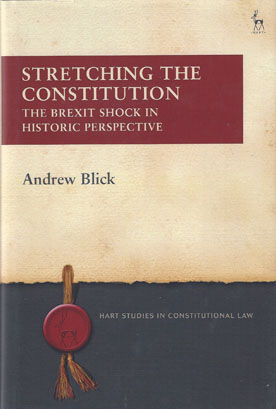
How far did the European Union (EU) referendum result of 23 June 2016 really justify and necessitate the policies executed in response to it? What are the implications of that vote and its prolonged aftermath for the United Kingdom (UK) constitution? What other challenges does our political system face?
This book seeks to answer these questions. It considers from a constitutional perspective the way in which the decision to leave the EU was taken and then implemented, discussing in particular the role of Parliament as a legislature and political assembly. It includes a close analysis of the referendum legislation, and relevant parliamentary debates.
The author also considers the wider implications of Brexit for a system that has changed substantially in the period since the United Kingdom first joined the European Economic Community (EEC) in 1973. Taking into account the expansive implications of Brexit, he considers a variety of aspects of the UK constitution, including referendums, Parliament, devolution and the Union, the Civil Service, and the so-called ‘unwritten’ constitution, from both an historic and contemporary perspective.
The book then assesses other issues that do not arise directly from Brexit but are likely to have implications for the operation of the system, and have a global aspect to them. They include political applications of the Internet and climate change. Finally, the author makes a series of proposals for constitutional and other reforms that will help the UK’s democratic system to adapt to its changing environment.